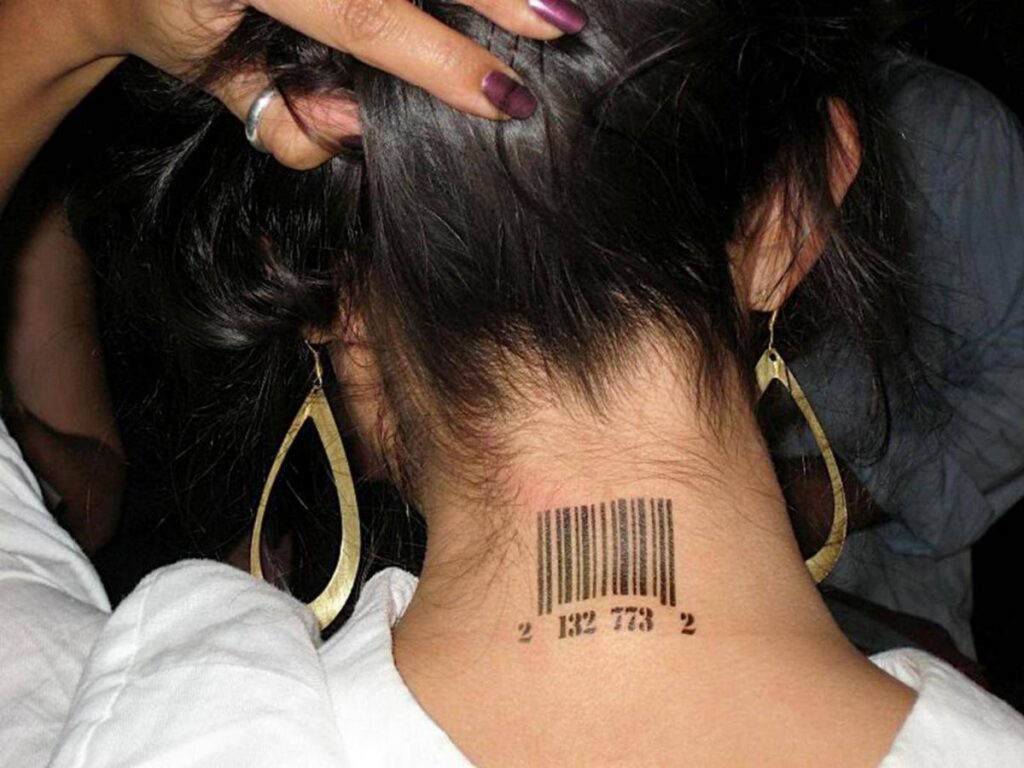
Most people who want their tattoos removed agreed to get them put on in the first place. Although they may have changed their minds, it was their idea to have a tattoo, regardless of the design or what it says.
There is a group of people, however, the overwhelming majority of whom are women, who didn’t agree to the tattoos they bear. In fact, they were forced into getting them – sometimes while drugged – as a result of being a victim of sex trafficking or intimate partner violence. Whether they were trafficked or a victim of intimate partner violence, the tattoos they are branded with are a traumatic reminder of a life they’d rather forget.
Tattoos serve as a reminder of a life better forgotten
These tattoos might be the name of their trafficker or partner, which provide a daily reminder of the person who abused them. Or they may depict gold bars, dollar signs or a barcode, indicating that the woman is property and her only value is the money she brings in. Sometimes those being sex trafficked are even tattooed with the asking price for their services. Hardly things they want to remember. In many instances, the tattoos are in very visible locations – on foreheads, necks and forearms. Some women are even tattooed above the groin.
For many survivors, the tattoos represent a physical manifestation of the power and control their abusers exerted over them. In addition to the physical pain of being tattooed against their will, these survivors bear the psychological weight of knowing that they have been branded by their tormentors.
Although there are no statistics for intimate partner violence, The Polaris Project, a nonprofit organization dedicated to combating and preventing human trafficking throughout North America, estimated that there were 10,836 victims of sex trafficking in 2020. That number is no doubt grossly underestimated, since it only includes those who were reported.
Numbers aside, trafficking is big business. A U.S. Dept. of Homeland Security report estimated that human traffickers make annual global profits of $150 billion worldwide in forced labor and sex trafficking.
Nearly 50 percent of sex trafficking survivors are branded
A survey of organizations that support sex trafficking survivors found that 47 percent of survivors had branding tattoos forced upon them. The survey was part of Liberating more than light: Laser removal of branding tattoos is impactful in the recovery of sex trafficking survivors, a study of 40 organizations throughout the U.S. conducted by three dermatologists and presented at the 41st ASLMS (American Society of Laser Medicine and Surgery) conference in 2022.
According to the survey responses, the researchers discovered that laser removal may promote more healing when compared to tattoo cover-ups, which remain as a reminder of the recipient’s past, even though the tattoo may be different.
It’s important, however, to offer any services that can promote healing to those who have gone through the traumatic experience of having unwanted tattoos forced upon them. And it’s vital that we continue to shed light on this issue, educate society about the existence and consequences of these tattoos, and provide support and resources to those affected by this silent but profound form of abuse. Survivors deserve the chance to heal, regain their autonomy, and rebuild their lives, free from the scars of their traumatic past.
Jails to Jobs’ tattoo program helps victims
Jails to Jobs has created a tattoo removal program that includes victims of sex trafficking and initimate partner violence. By making a donation, you can play a critical role in providing survivors with a fresh start and the opportunity to reclaim their bodies and their lives. Your donation will go directly towards covering the costs of safe and professional tattoo removal services for survivors of domestic violence and sex trafficking. Every contribution, no matter how small, can make a difference.
To donate and learn more about the Jails to Jobs Tattoo Removal Program, please visit our website or contact us. Your support can provide hope for survivors and allow them to move beyond their past and towards a brighter and more empowered future. Thank you for your generosity and compassion.
Photo: The Independent

